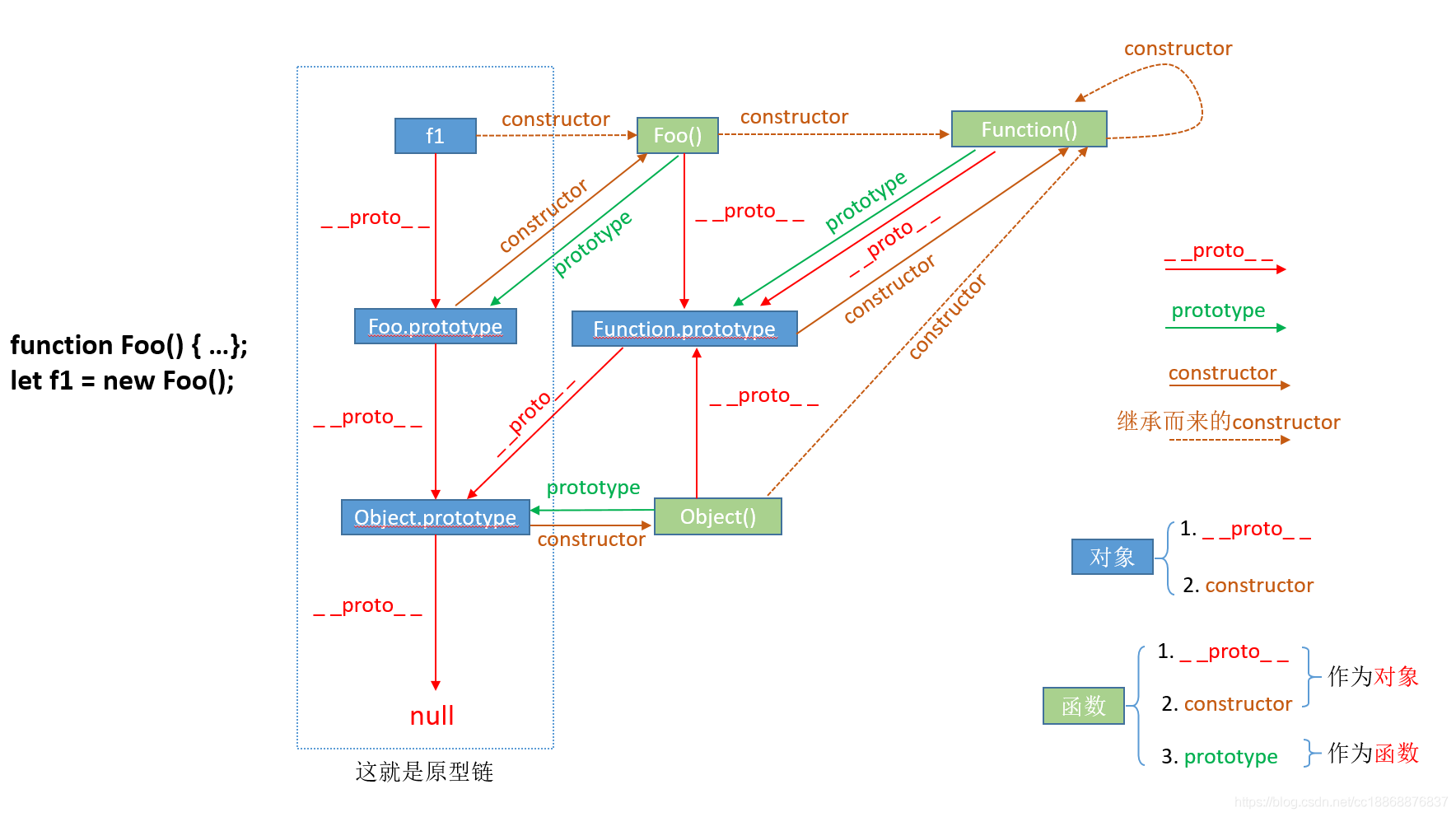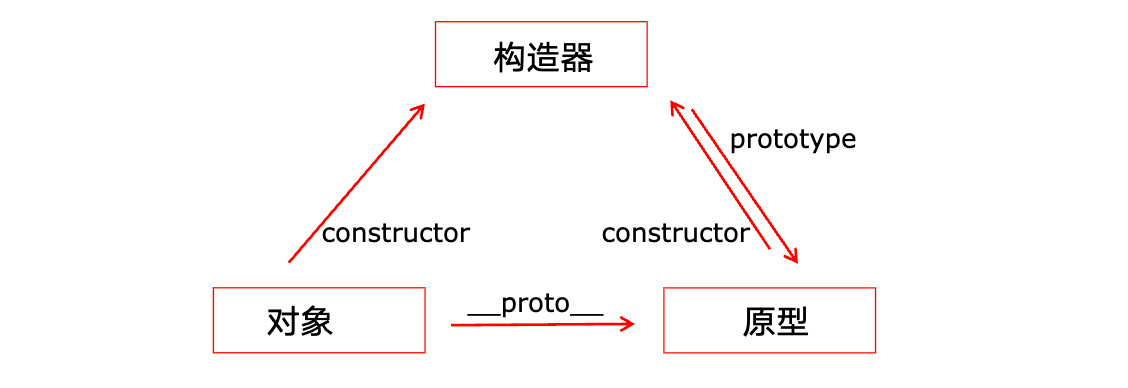New 原理
CREATE: 2022-03-11 22:14:09
题目:实现一个 new 操作符的功能 ( 简单😄 )
请利用 Ts | Js,实现一个 new 操作符的功能
分析
new 操作符一共分为 4 步:
- 创建一个对象,并将原型指向构造器的原型
- 纠正创建对象的构造器
- 借用构造函数,去初始化数据
- 返回构造函数返回的对象(如果存在),不存在则返回创建的对象
题解
function MyNew(constructor, ...args) {
const obj = Object.create(constructor.prototype)
obj.constructor = constructor
const result = constructor.apply(obj, args)
console.log('[result]:', result)
console.log('[obj]:', obj)
return typeof result == 'object' ? result : obj
}
使用
class Person {
private name?: string
constructor(name?: string) {
this.name = name
}
}
// function Person(name) {
// this.name = name
// }
// class is only a candy of function
// so it can be applied, although not be invoked
function main() {
const person = MyNew(Person, 'John')
console.log('[person]:', person)
}
main()
Prototype 扩展 1:Js 中 prototype、__proto__、constructor三者之间有什么区别和联系呢?
看下图

我们只看单独的一个,就比价清楚它们三者的联系了:

看懂这个图,就可以解决以下问题:
- 为什么 Person.prototype.say 方法,在 person 实例上可以调用?
Prototype 扩展 2:用 toString 去准确判断数据类型
以下部分代码参考自 lodash 库
const arrayTag = '[object Array]'
const boolTag = '[object Boolean]'
const dateTag = '[object Date]'
const errorTag = '[object Error]'
const mapTag = '[object Map]'
const numberTag = '[object Number]'
const objectTag = '[object Object]'
const regexpTag = '[object RegExp]'
const setTag = '[object Set]'
const stringTag = '[object String]'
const symbolTag = '[object Symbol]'
const weakMapTag = '[object WeakMap]'
function getTag(value) {
if (value == null) {
return value === undefined ? '[object Undefined]' : '[object Null]'
}
return Object.prototype.toString.call(value)
}
使用
const num = 123
if (getTag(num) == numberTag) {
console.log('[]:', 'this is a number')
}
// =>
// []: this is a number